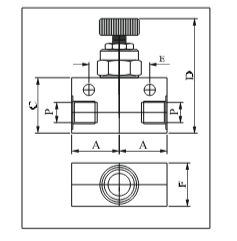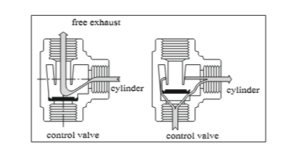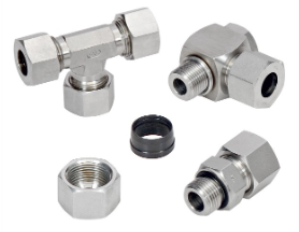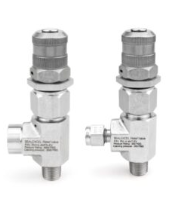
A Comprehensive Overview on Hydraulic Fittings
January 30, 2024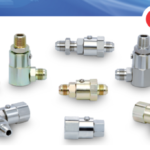
Hydraulic Hoses and Fittings: Secured Connections, Smooth Flow
May 27, 2024Imagine a machine that dances to your tune. Not literally, of course, but one that responds exactly as you command, with smooth, controlled movements. In the world of hydraulics, achieving this level of precision hinges on a crucial component: the Hydraulic Flow Control Valve.
Think of it as the conductor of an orchestra – it directs the flow of hydraulic fluid, the lifeblood of your machine, ensuring every component performs its part flawlessly. But how exactly does this unsung hero work its magic?
Understanding the Power of Hydraulic Flow Control Valve
In a nutshell, hydraulic systems rely on pressurized fluid to generate power. This fluid, typically oil, is pumped through a network of pipes, hoses, and valves to drive actuators like cylinders and motors. The speed and force of these actuators depend directly on the volume and rate of flow of the hydraulic fluid.
Here’s where the hydraulic flow control valve steps in. By regulating the flow rate, this valve essentially controls the speed of the actuators. Imagine a garden hose – the wider you open the valve, the faster the water flows. Similarly, adjusting the flow control valve allows you to fine-tune the speed of your hydraulic machine, from a gentle nudge to a powerful thrust.
Types of Flow Control Valves: Each with a Specialty
Not all flow control valves are created equal. Different designs cater to specific needs and applications. These are a few of the most typical ones:
- Metering Valves: These offer precise control over flow rate, ideal for applications requiring smooth, controlled movements, like lifting delicate objects.
- Needle Valves: Similar to metering valves, but with a finer adjustment mechanism, offering even more precise control.
- Pressure-Compensated Valves: These maintain a constant flow rate regardless of changes in pressure, ensuring consistent performance even when dealing with varying loads.
- Fixed-Orifice Valves: These offer a simple, cost-effective way to restrict flow to a predetermined rate, suitable for applications requiring a constant speed.
The Benefits of Mastering Flow Control
So, why should you care about hydraulic flow Control Valves? Here are some compelling reasons:
- Enhanced Precision: Precise control over actuator speed translates to improved accuracy and repeatability in your machine’s operations.
- Optimized Performance: By fine-tuning flow rates, you can maximize efficiency and productivity while minimizing energy consumption.
- Smooth Operation: Flow control valves help eliminate jerky movements, resulting in smoother operation and reduced wear and tear on your machine’s components.
- Increased Safety: Precise control over speed leads to safer operation, especially when dealing with heavy machinery or delicate tasks.
Choosing the Right Flow Control Valve: It’s All About Application
With so many options available, selecting the right hydraulic flow control valve for your specific needs is crucial. Here are some factors to consider:
- Flow Rate Requirements: Identify the minimum and maximum flow rates needed for your application.
- Pressure Range: Ensure the valve is compatible with the pressure range of your hydraulic system.
- Controllability: Determine the level of precision required and choose a valve offering the appropriate degree of adjustment.
- Environmental Conditions: Consider factors like temperature and vibration that might affect the valve’s performance.
Maintaining Peak Performance: Keeping Your Flow Control Valve in Top Shape
Like any crucial component, proper maintenance is essential for optimal performance. Regularly inspect your Hydraulic Flow Control Valve for signs of wear and tear, such as leaks or sticking mechanisms. Consult your machine’s manual for specific maintenance recommendations and cleaning procedures.
By understanding the power of flow control and choosing the right valve, you can ensure your hydraulic machine operates at peak efficiency, precision, and safety. So, the next time you witness your machine performing with remarkable control, remember the silent maestro behind the scenes – the hydraulic flow control valve.

